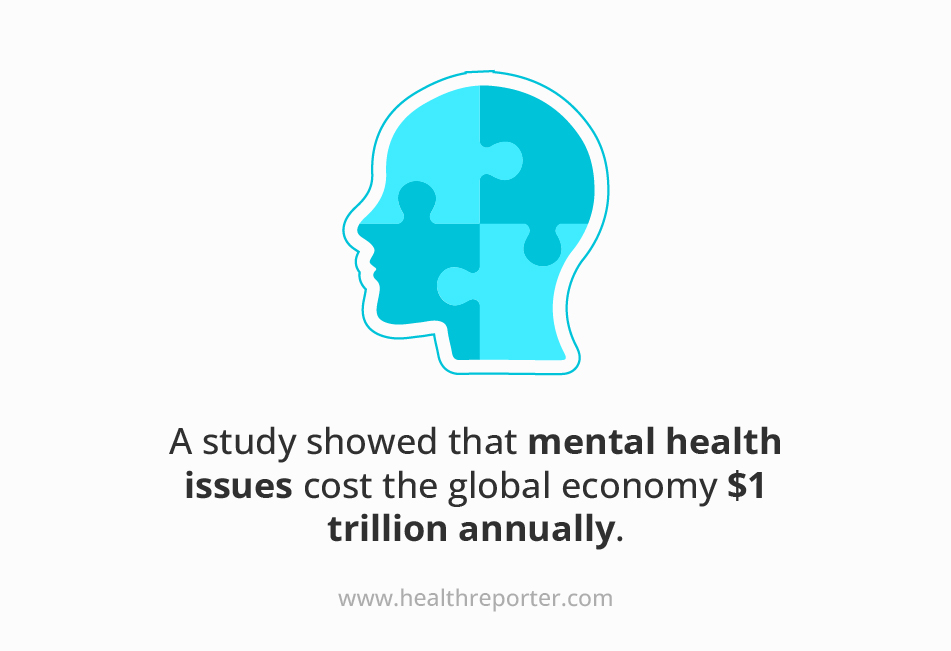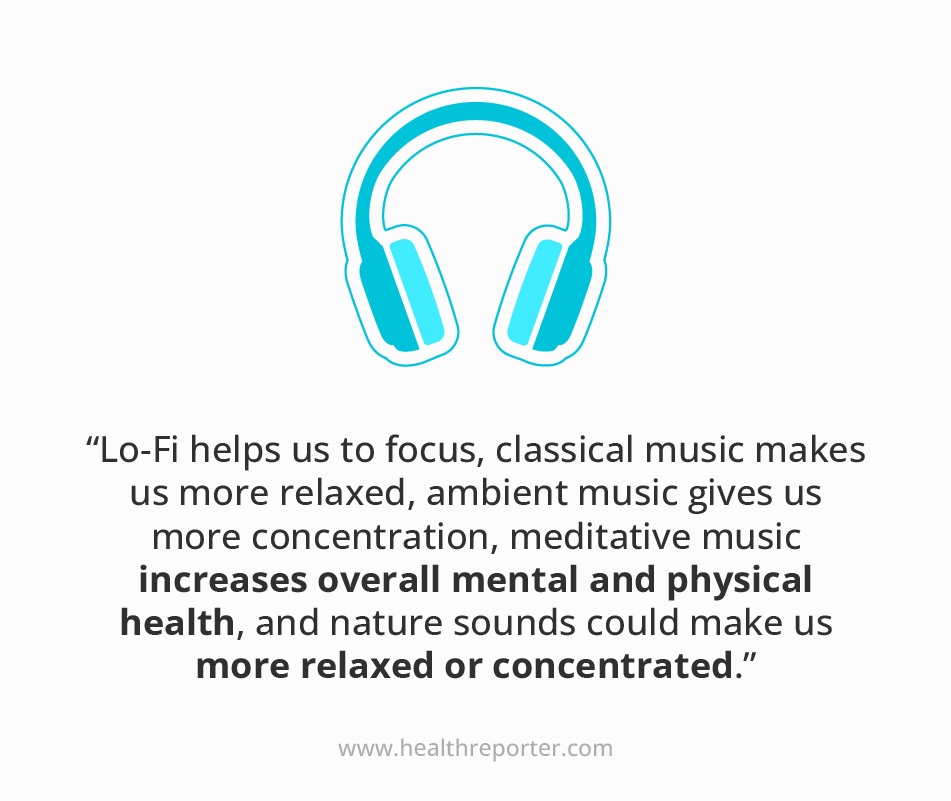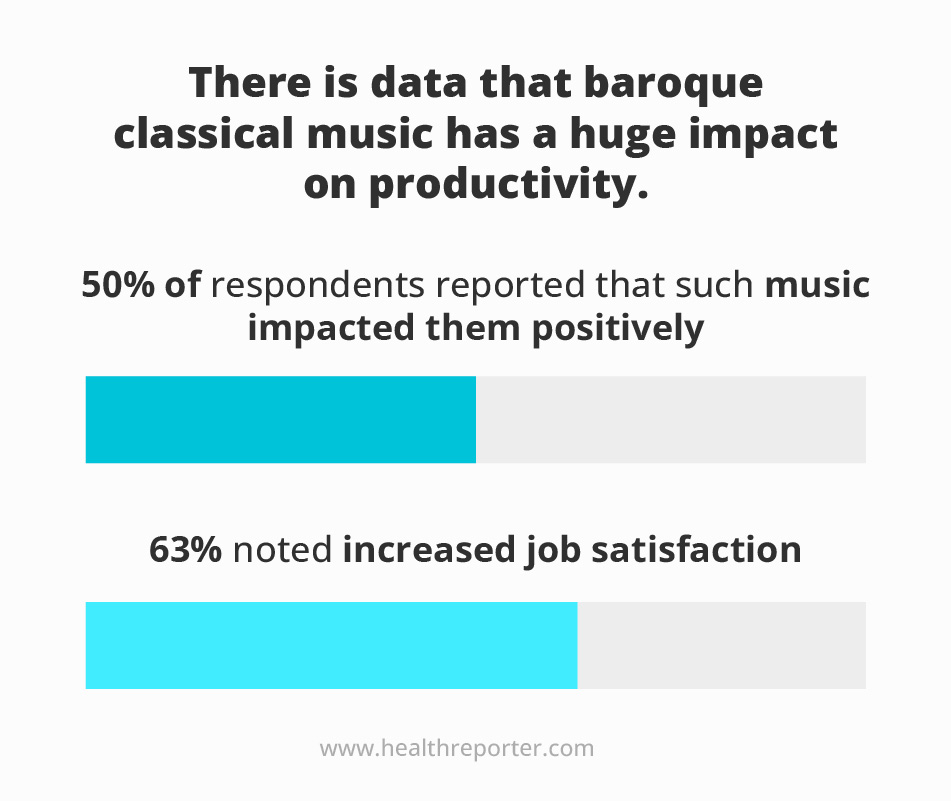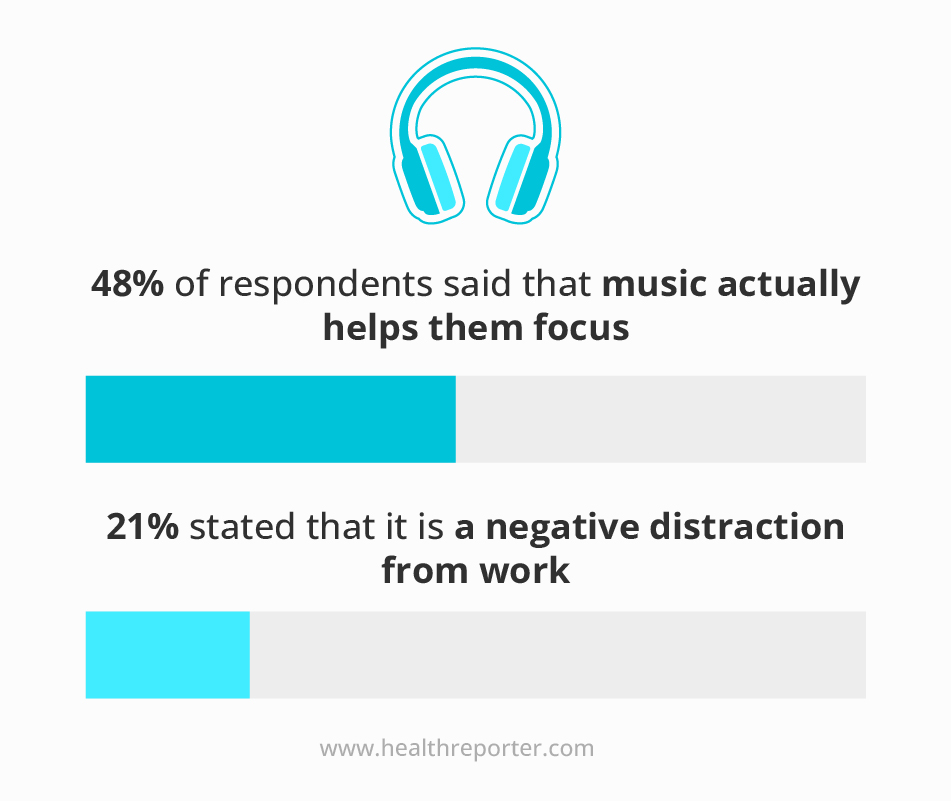How Does Music Affect Your Productivity at Work?

Music is a universal language. It can change your mood and helps you bond with people as well as express yourself. Music helps to connect with thoughts and feelings, reduces stress hormone cortisol secretion, and even boosts your focus and concentration. But can music affect our productivity when it comes to work?
“Music has the power to make our workplace a little bit better,” says Janette Daubare, co-founder and CEO of the Yours app which helps rejuvenate the body, mind, and soul with music, meditation, and sleep stories.
According to data, we listen to music for about 32 hours per week, about 5 hours per day. 40% of respondents said they listen to music at work, and a whopping 80% said they turn the music on while commuting to and from work. It’s obvious that music is an important part of our daily lives. Therefore, the creator of the wellness mobile app, Janette Daubare, raises a question: Why not employ it to help us create a better workplace?
This question was raised and widely discussed at the Health Tech Forward conference in October 2022.
Key Findings
- We listen to music for about 32 hours per week and 5 hours per day.
- Mental health issues, such as depression and anxiety, cost the global economy $1 trillion annually.
- Listening to positive music for two weeks every day for at least 15 minutes increases happy hormones by 8%.
- 48% of people said that music actually helps them focus, while 21% stated that it is a negative distraction from work.
Music as a Tool of Motivation
10–20 years ago, it was normal to work in absolute silence. Since then, things have changed drastically. Knowing that music has a huge impact on our mood, engagement, emotional well-being, and even work productivity, more and more employers are using the power of music to make people feel better in the workplace.
Janette Daubare, the co-founder and CEO of the mental wellness app Yours, also notices that employers purchase Spotify subscriptions for each employee or allow their staff to watch YouTube for 30 minutes every day. However, Daubare raises the question if this is an effective step to make your workers feel good at the workplace.
Daubare suggests that employers who want to make the workspace more relaxing should play calm instrumental music. According to her, such tunes are perfect for a workplace. She explains it like this: “First of all, we need to make a person happy in that workplace. We need music that helps people to work better. And if they work better, they feel better. It is a well-known fact that if the employee is happy, he even tends to like the employer more and more.”
Can Music Save Us From a Financial Crisis?
Stress levels, depression, and anxiety have a huge impact on the economy. A study showed that mental health issues cost the global economy $1 trillion annually. It goes without saying that when people are unhappy or burned out, their productivity levels drop drastically.

Music became a part of science. Researchers around the world analyze how music influences our thoughts and feelings. A study that took place in 2013 showed that people who listen to music tend to complete tasks quicker than those who are working in silence. Researchers also found that those who listened to music came up with better ideas, and their mood was also better.
However, it is critical to choose music that is appropriate for your work style. The wrong choice can lead to poor performance and badly impact employee concentration.
A Generation of Sound Productivity
As music is such a universal thing, there is no surprise that everyone has a different musical taste. That’s why employers need to know what kind of music to use to motivate people. Daubare explains the specifics of various music genres: “Lo-Fi helps us to focus, classical music makes us more relaxed, ambient music gives us more concentration, meditative music increases overall mental and physical health, and nature sounds could make us more relaxed or concentrated.”

There is data that baroque classical music has a huge impact on productivity. 50% of respondents reported that such music impacted them positively, while 63% noted increased job satisfaction.

According to research, listening to cheerful music for at least 15 minutes every day for two weeks raises happy hormones by 8%. Such music also provides much-needed relaxation while stimulating the brain.
Music has the power to change our mood and can even work as an anti-anxiety medication. It can also help people stay concentrated for longer periods of time and perform better. Various studies have shown that instrumental background music boosts energy and motivation, while music with lyrics might negatively affect productivity.
In one study, 48% of respondents said that music actually helps them focus, while 21% stated that it is a negative distraction from work. 79% of respondents mentioned that they benefit from listening to music at their workplace.

How can we adapt to listening to music to feel better and stay motivated at work? There are three main rules: mind the volume, choose instrumental music over the one with lyrics, and consider creating different playlists for each mood.
Conclusion
Music can be a huge distraction or a much-needed mood booster. When used at the right place and time, it might increase employee productivity and satisfaction. While some people say music doesn’t help them work better, most workers see the ability to listen to music as a huge perk.
Sources: Nielsen, IFPI, WHO, New York Times, PubMed 1, PubMed 2, PubMed 3, ScienceDaily,Cell, TotalJobs, eCommons

















































 Select your language:
Select your language: 







